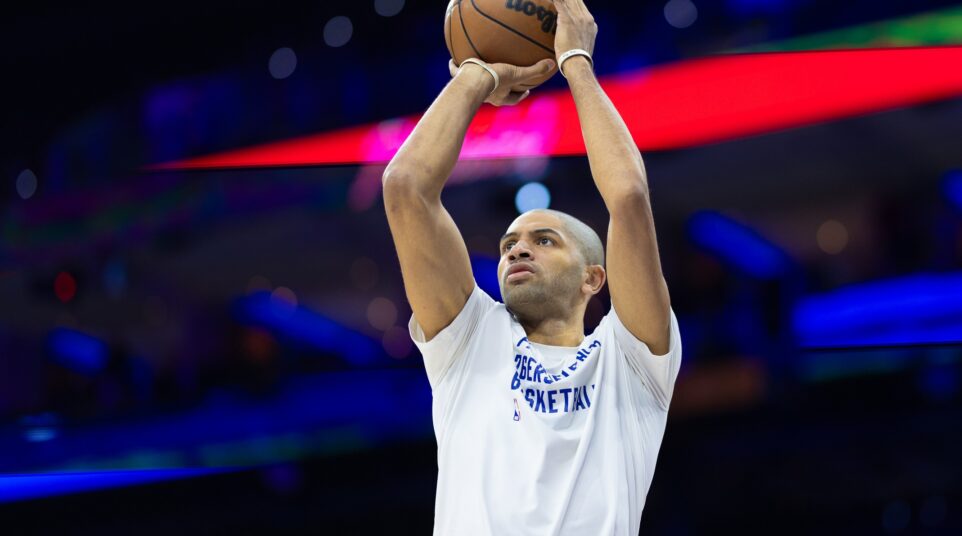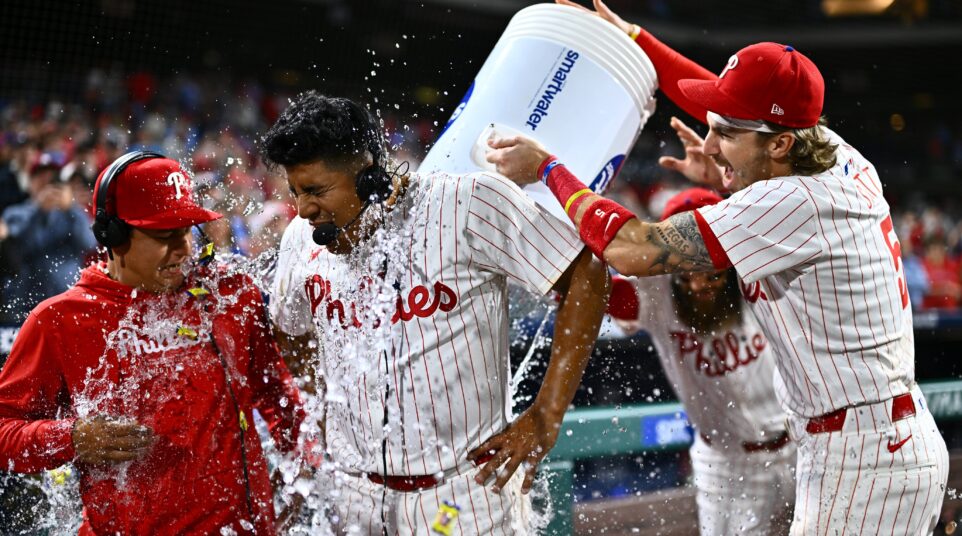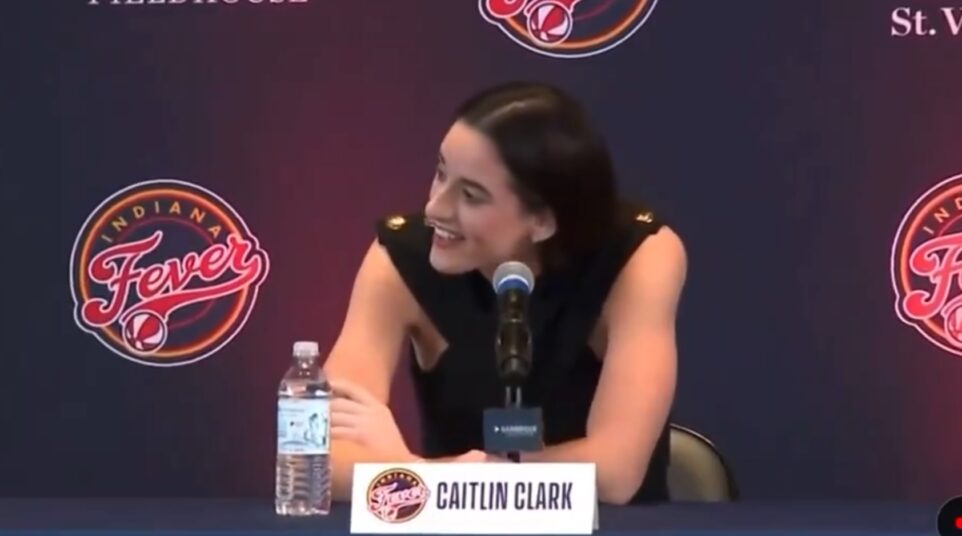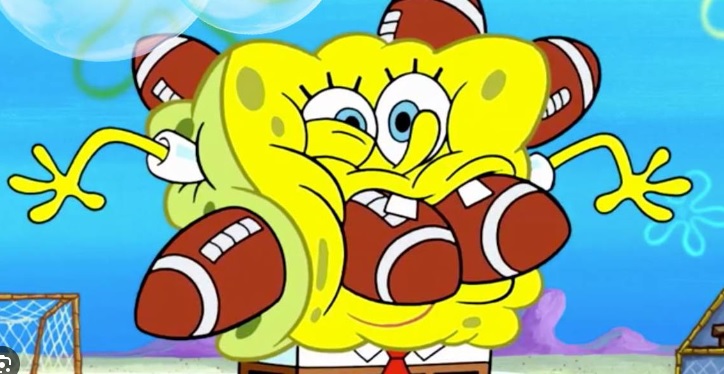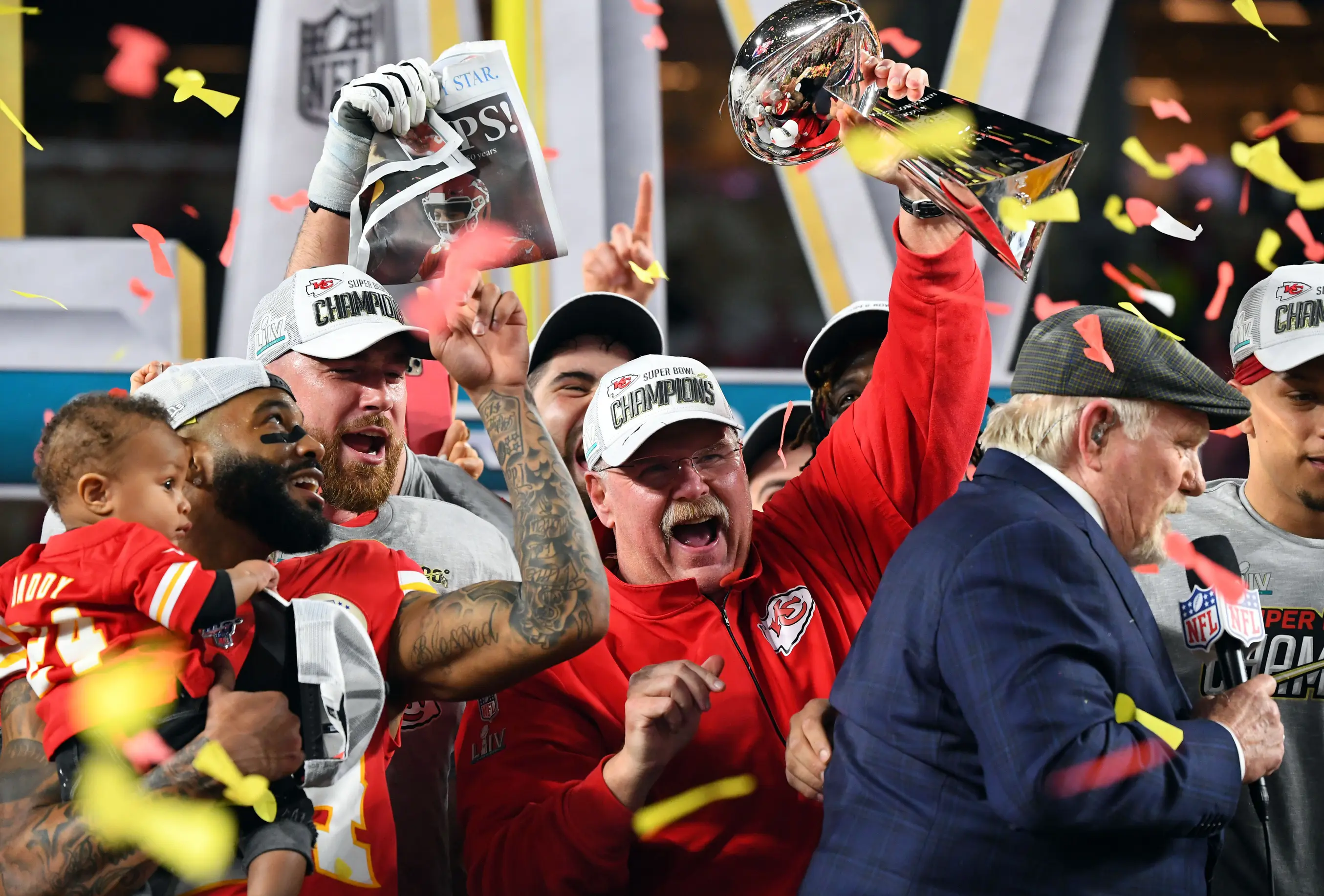
Andy Reid Won the Super Bowl With No Clock Management Issues
Andy Reid won the Super Bowl.
And he did it with no clock management issues at all, which is the main thing people used to kill him for during his 14 years in Philadelphia. The jokes would surface every time Big Red would coach a postseason football game, and inevitably fall short.
No more, however. The quips and wisecracks must be forever retired.
Big Red didn’t use his first timeout until 19 seconds remained in the first half, which, ironically, was a result of the other coach screwing up his clock management. In the second half, the game was completely in the bag, and Andy decided to burn a TO before the final play, when Patrick Mahomes rolled to his right and threw the ball as high into the air as possible, which resulted in the five remaining seconds ticking off the game clock.
The whole thing was incredibly paradoxical, as Kyle Shanahan instead got hammered for his decision to not stop the clock. It was the end of the first half, with about 90 seconds remaining and San Francisco getting possession of the ball with momentum while the game was tied at 10. That’s the only reason Reid used his timeout, because he saw that the 49ers were just trying to get to the locker room, for whatever inexplicable reason.
Even San Francisco general manager John Lynch was calling for a timeout:
Kyle Shanahan’s clock management has been a touching tribute to Andy Reid and it’s even brought John Lynch to his feet.
Beautiful sportsmanship. #SuperBowl pic.twitter.com/EMQffwWmJV
— Mike Beauvais (@MikeBeauvais) February 3, 2020
Andy, for the most part, was aggressive. He went for it twice on fourth down and converted both of those looks. His chiefs controlled the clock for 33:13. And on the critical fourth quarter drive that began at the Kansas City 20-yard line with 8:33 remaining, his team went all the way down the field on a 10-play drive that only took 2:40 off the clock. San Francisco got the ball back with 6:06, KC forced a three-and-out, and then started their game-winning drive with 5:05 remaining. For a while there I thought Andy may have scored too quickly. Imagine that; some sort of reverse-horrible clock management that takes us to the other side of the spectrum entirely.
The whole thing is mind blowing. It actually kind of makes me laugh out loud.
Andy, who never used his timeouts properly in Philly, could have won last night’s Super Bowl without using a single clock stoppage at all. Not only did Big Red finally get over the hump, but he did it while defeating some of the major criticisms Eagles fans had of him. He managed the clock. His team came from behind, not once, not twice, but three times in a row this postseason. He gave Damien Williams the ball 17 times and ran a couple of clever direct snap plays in short-yardage situations.
And the pass/run split will go down as 42 to 29 on paper, which is a reasonable 59% to 41%, though that number is skewed by a handful of called passing plays that Mahomes ran instead. There was also an option play in there and Kansas City typically uses more RPO than most NFL teams.
Those things considered, when you look at the flow of the game:
- the Chiefs playing from behind necessitated the amount of throws they attempted in the second half
- they typically toss those short wide receiver and bubble screens, which are essentially just extensions of the running game
- Andy did run the ball ten times on the first three drives, when the score was closer
- if Mahomes was your QB, you’d throw the ball too
It’s always hard to log pure pass/run splits when you have stuff like this taking place in the modern-day NFL:
KC led the NFL is the most RPO attempts in 2019. (Run Pass Option). Here Mahomes reads the BSLB (no one blocks him). If he drops in coverage, QB hands off to the RB on the OUTSIDE ZONE play. If BSLB flows (just a bit), he throws to the TE in the LBers voided zone pic.twitter.com/zVB86FxZGv
— Paul Alexander (@CoachPaulAlex) February 3, 2020
Those are typical college plays that now exist in the NFL. Nick Foles threw a ton of RPO in 2017 and 2018, and Mahomes does a lot of it too, which makes sense coming from a pass-happy Big 12 program like Texas Tech.
So yeah, Andy did a nice job this year. He had dynamic playmakers at the quarterback, running back, wide receiver, and tight end positions. Game plans typically revolved around just putting the ball in their hands and allowing them to do their thing. This wasn’t square peg/round hole Reid, who was stuffy and stubborn back in the day. He showed more assertiveness and more urgency this year and had a team that was able to score in bunches, plus a resilient defense that showed an ability to steady itself after giving up leads against Houston, Tennessee, and San Fran.
Good on Big Red for finally getting that ring. The way it went down had to be especially satisfying for him, with a come-from-behind victory in which nobody panicked and he kept both his cool and his timeouts.


